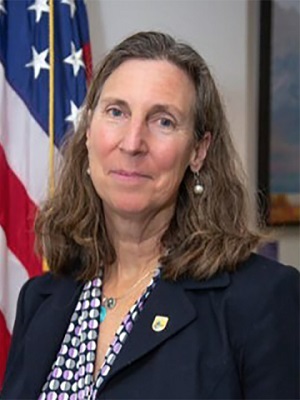U.S. Fish and Wildlife Service Director Martha Williams | fws.gov/
The Committee will come to order.
Good afternoon. Today the subcommittee is pleased to be joined by this key panel of Department of the Interior leaders: Director Tracy Stone-Manning with the Bureau of Land Management, Director Martha Williams with the U.S. Fish and Wildlife Service, and Director Chuck Sams with the National Park Service.
Following our hearing with Secretary Haaland yesterday, we appreciate you all being here today to discuss the bureau-level details and priorities of the administration’s fiscal year 2024 budget request.
Among the three DOI Bureaus, you manage most of the land in my home state of Idaho and I am well acquainted with the challenges you and your staff face on a daily basis protecting and conserving our National Parks, wildlife refuges, and public lands.
My colleagues and I hope to cover a lot of ground with you today. While I may not agree with all the priorities in this budget proposal, I appreciate that we can have a productive conversation about the land management issues we are facing and the tools you need to manage our lands effectively and efficiently.
Each of your fiscal year 2024 requests are for increases of hundreds of millions of dollars, including for initiatives like zero-emission vehicles. This year more than ever—we must decipher between want and need.
I have said this before, but it is important to repeat it. As the Nation faces record inflation, we must be very conscious of our decisions on this Committee to not saddle our future generations with unnecessary economic burdens and further debt.
The Republican Conference and the House Appropriations Committee have committed to taking meaningful steps to help put our country’s fiscal house in order.
In Idaho, it is difficult to think of land management without thinking first and foremost about threatened and endangered species. I commend the three of you for the cooperative approach you all are taking to conserve the sage grouse. Through collaborative work with private landowners and investments at the state and federal levels, the sage grouse has not been listed. This is a huge win for conservation and should serve as a blueprint for other species.
On the other end of the success spectrum, again this year, we are hearing about growing permitting backlogs for grazing and energy and mineral activities. There are continued population issues with wild horses and burros and management activities that aren’t hitting the mark. Many of my colleagues hear from their constituents about the increasing demand for access and recreation on our public lands.
I could go on, but I feel our time would be best used in conversation, so I look forward to working with you on many of these issues and thank you and your staff for their hard work and assistance.
At this time, I will yield to Ranking Member Pingree for her opening statement.
Original source can be found here.


